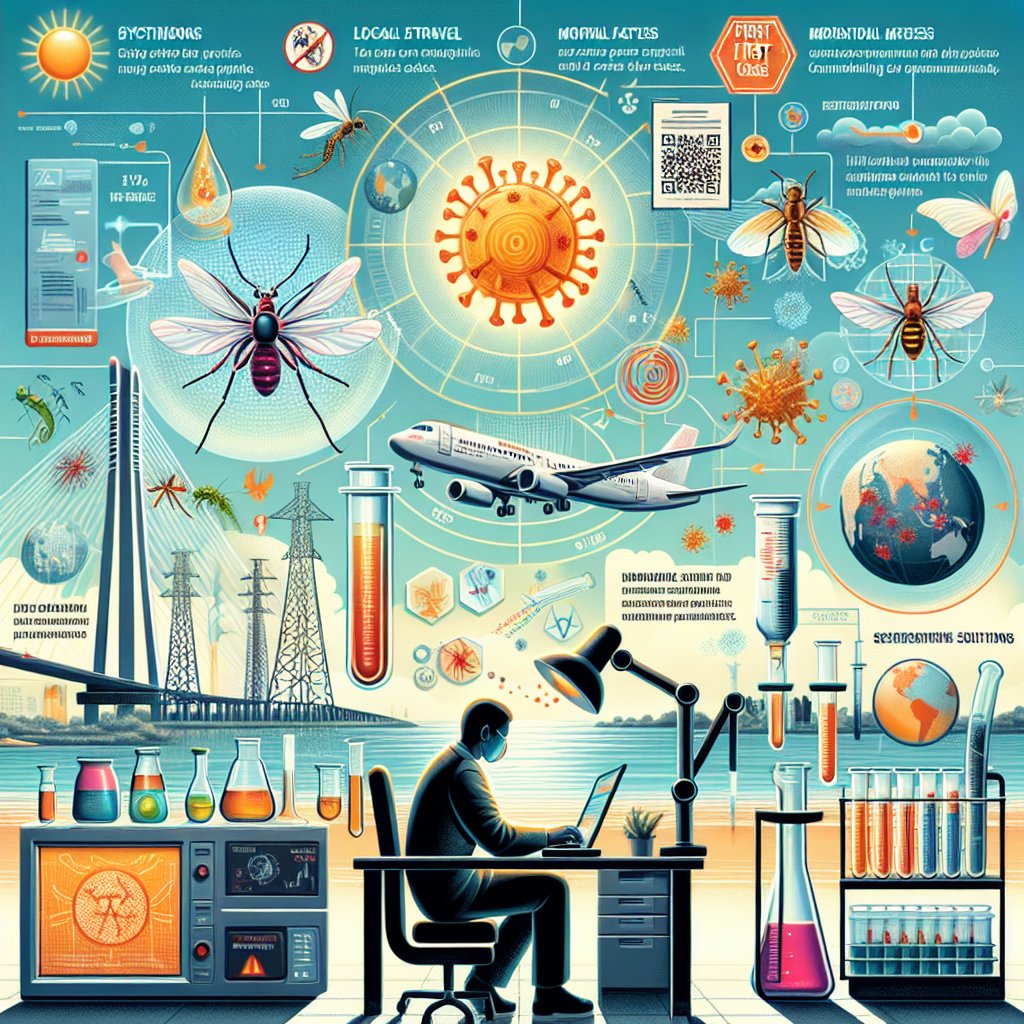Image created by AI
Texas Battles Mosquito-Borne Illnesses as West Nile and Dengue Cases Emerge
Texas faces a mounting challenge as the state's health officials confirm its first case of the West Nile virus for the year, alongside reports of 10 cases of dengue fever, indicators of a broader trend of a global spike in mosquito-borne illnesses. The Texas Health and Human Services have emphasized the link between these disease vectors and international travel, but local factors, such as burgeoning mosquito populations linked to climate change, are also contributing to the growing concern.
The symptoms of West Nile virus are varied. While around 20% of those exposed suffer milder symptoms like fever and aches, the West Nile neuroinvasive disease presents a more severe threat, potentially leading to fatal outcomes for less than 1% of those infected. Meanwhile, Dengue fever continues to be a persistent concern, particularly with cases stemming from global mobility.
Dr. Jennifer Shuford, the state health department commissioner, underlined the importance of public awareness and proactive measures to prevent bites, given the capability of many Texan mosquitoes to transmit these serious illnesses. "It is important for Texans to know how to protect themselves against mosquito bites," she states, acknowledging the severity some cases can escalate to.
The correlation between the surge in mosquito activity and climatic factors is undeniable. Texas's increasingly warm climate, primarily due to burning fossil fuels like gas and oil, is creating an ideal environment for mosquitoes to thrive and spread further. The recent rains from Hurricane Beryl exacerbate the scenario, providing abundant standing water necessary for mosquito breeding.
Solutions range from eco-friendly, such as mosquito dunks employing nontoxic bacteria and natural plant deterrents, to high-tech innovations like genetically engineered mosquitoes designed to cull disease-spreading populations. Beyond these measures, there is a clear consensus on the need for broader action against climate change through an energy transition towards clean and renewable sources like wind and solar power.
The report bears a correction from an initial misstatement, clarifying that this confirmed case is not the first ever but rather the inaugural case for the year of 2024. The previous year, Texas reported 154 cases of West Nile virus with a death toll of 13 according to Texas Department of State Health Services records.










